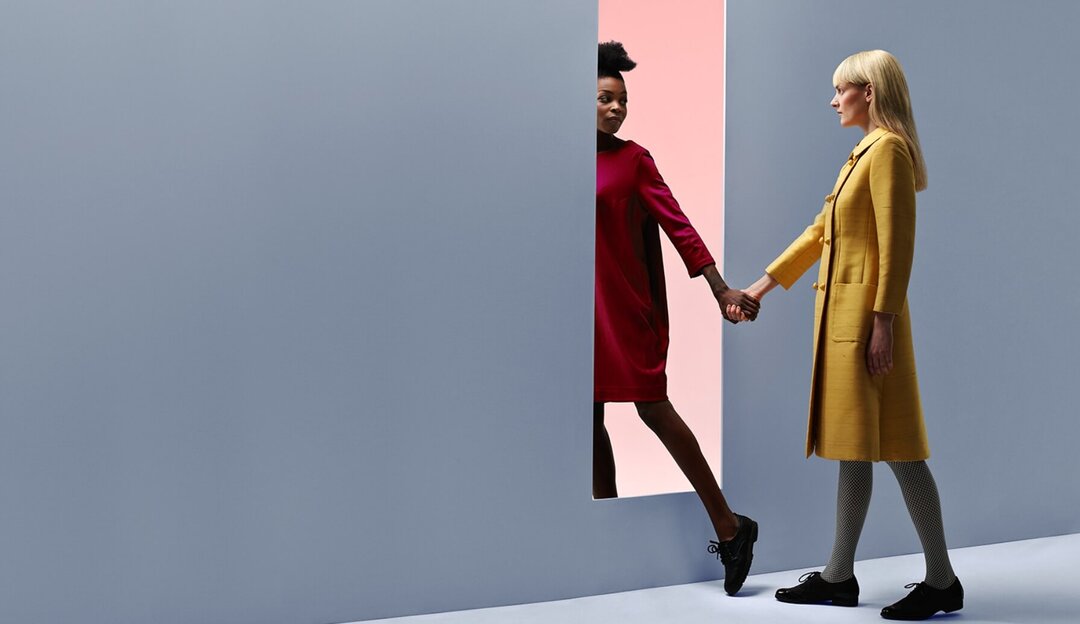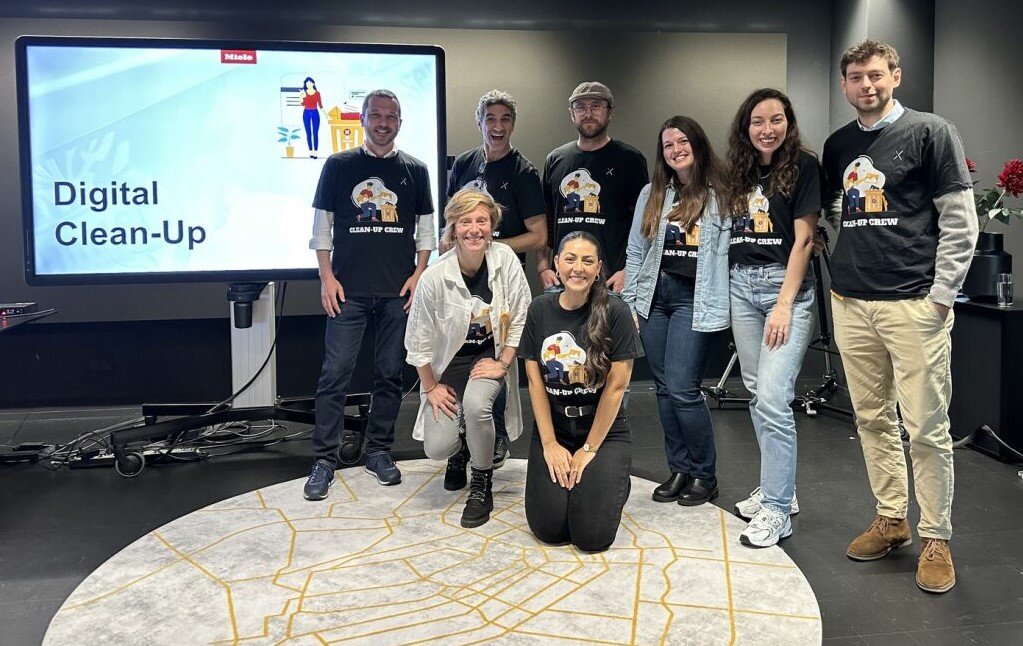
Search jobs
Help to shape the digital future of one of the world’s best-loved brands.
Sustainability is a big focus for Miele X. That’s why, for the last two years, the company has supported two successful clean-ups in the Amsterdam area in partnership with Bye Bye Plastic – an NGO that targets removing single-use plastic from the environment. But for their latest collaboration, they decided to look at sustainability in a different way, by focusing on digital sustainability and green IT. So, they organised a Digital Clean-Up event at the Miele X Community Space, with two key aims. Firstly to raise awareness of the environmental impact of digital technology and secondly, to see how much difference people could make in just one hour.

Raising individual awareness
For Miele X, as the digital hub for a major global brand, a digital clean-up made perfect sense, as Jerome, the company’s IT Operations Manager, explained: “Sustainable IT is important to us because one of Miele’s biggest goals is to be ‘Immer besser’ for the planet. And as a digital hub, we need to contribute to a better world in our own way, through green IT.”
For Camille, the Co-Founder of Bye Bye Plastic, it was a chance to discover a different area of sustainability. “It’s a new ecosystem to capture for us,” she explained. “But at the same time, it’s completely applicable to our teams and processes, so it’s a good opportunity to reflect on our practices and apply new knowledge into our own ethos.”
It was also an opportunity to open people’s eyes to how they, as individuals, can have a sustainable impact. The plan was to invite representatives from different Miele X teams to a focused digital clean-up over a single hour on October 26th 2023, targeting files and folders in the Miele X OneDrive account, as well as people’s email inboxes. To ensure everything ran smoothly, everyone involved received detailed instructions beforehand. This not only gave them a timetable for the event, but it also provided useful tips on what – and what not – to delete.
Setting the scene
To raise people’s awareness of the importance of sustainable IT and the impact that cleaning up data can have, the organisers invited subject matter experts from the Belgian Institute for Sustainable IT to take part.
After a brief introduction, Olivier Vergeynst, Director at the Institute kicked off the event by highlighting how sustainable IT starts with us all as individuals. He pointed out that IT accounts for more greenhouse gas emissions than civil aviation. And he quoted a GreenIT.fr study on the environmental footprint of the digital world, showing how individual IT users have a far greater environmental impact than networks or data centres. In fact, according to the study, individuals account for 60% of the energy, 63% of the greenhouse gases, 83% of the water, 44% of the electricity and 75% of the mineral resources associated with IT.
This was eye-opening for Keef, an IT Facility Manager at Miele X, who was particularly surprised by the amount of energy it takes to produce a mobile device and the impact of the different means of storage. “It really helped me to understand my own impact, and how I can influence and change my working environment and behaviour,” he said, adding that he was looking forward to more sessions like these in the future.
To emphasise the importance of cleaning up data, Olivier explained that in 2021, 2.5 million Terabytes of data – equal to 180,000 times the contents of the Bibliothèque Nationale de France – were generated every day. In particular, he highlighted that 60% of this data is associated with online video for entertainment, generating over 300m tons of CO2 equivalent each year.
He concluded by outlining some simple best practices that everyone can adopt. Such as sending fewer emails, using file transfer platforms for large attachments, sharing documents rather than sending them, avoiding auto-sync for photos and videos, and using cabled networks or Wi-Fi instead of 4G or 5G. Most relevantly, he also stressed the need to delete unused apps and data in bulk.
It was an eye-opening presentation for many of the audience, and they suggested it should be mandatory for everyone at Miele X. So, it set the mood perfectly for the data clean-up itself.
The big clean-up
During the hour-long clean-up there was a very positive vibe, as Miele X colleagues were supported by the Institute’s subject matter experts. And although the focus was on individuals cleaning up their own laptops, there was also a lot of collaboration to ensure the right data was deleted.
Anna, an HR Co-ordinator at Miele X, said the clean-up showed her that it doesn’t take a lot of time or effort to make a difference. “Behind your laptop you can make a positive contribution towards a more sustainable future in just one hour.” And she explained how it would change her IT habits: “Digital clean-up is an ongoing activity. When it comes to daily practice, deleting irrelevant emails, files and browser cookies is now incorporated into my work routine.”
By the end of the 60-minute clean-up, the teams had wiped huge amounts of unneeded data from their OneDrive and email accounts. While the exact amount of deleted data was calculated, they enjoyed drinks and snacks. And when the results were announced, everyone was delighted to hear that they’d helped to save 48kg of CO2 equivalent – the same as a 222km car journey – in just 60 minutes.
Only the start
As Camille explained, while the amount of data deleted was important, it wasn’t the main aim. “The goal was to take this first step – to make it happen and to help people understand the topic,” she said. “I think we’ve set up best practice for other digital clean-ups throughout Miele X – that’s been the feedback during the event.”
Jerome shares the hope that this event will be the start of something much bigger: “We have a world that’s constantly growing in terms of data, so we need to think about the impact that our IT has on the environment,” he said. “Through this initiative, we’re going in the right direction. But we shouldn’t wait once a year to do this – it should be part of our DNA.”
Camille agreed, and summed up the mood of everyone involved: “I think it’s very positive – it’s only upward from here.”